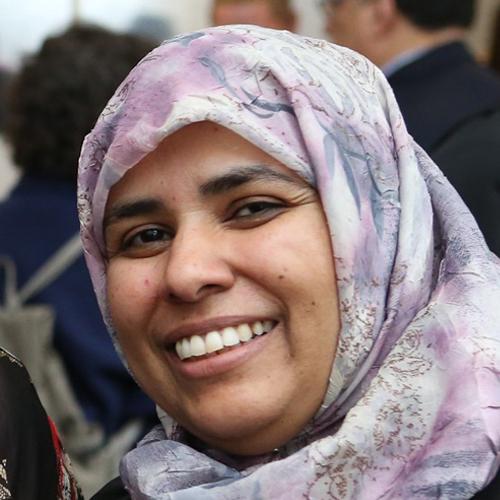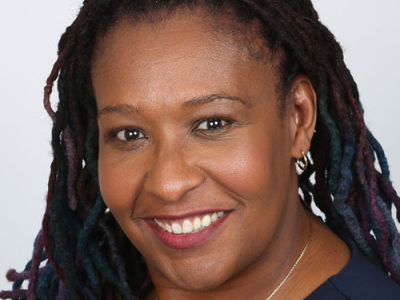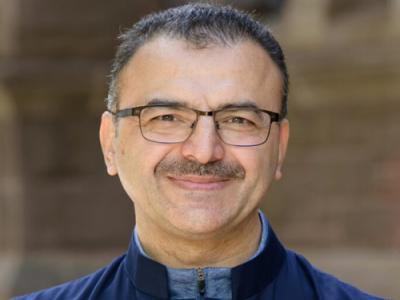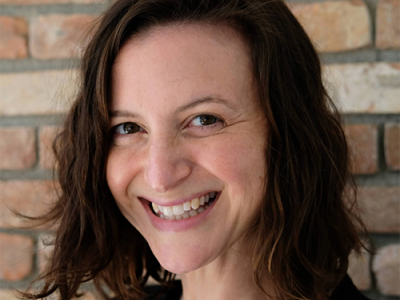Master of Arts in Chaplaincy
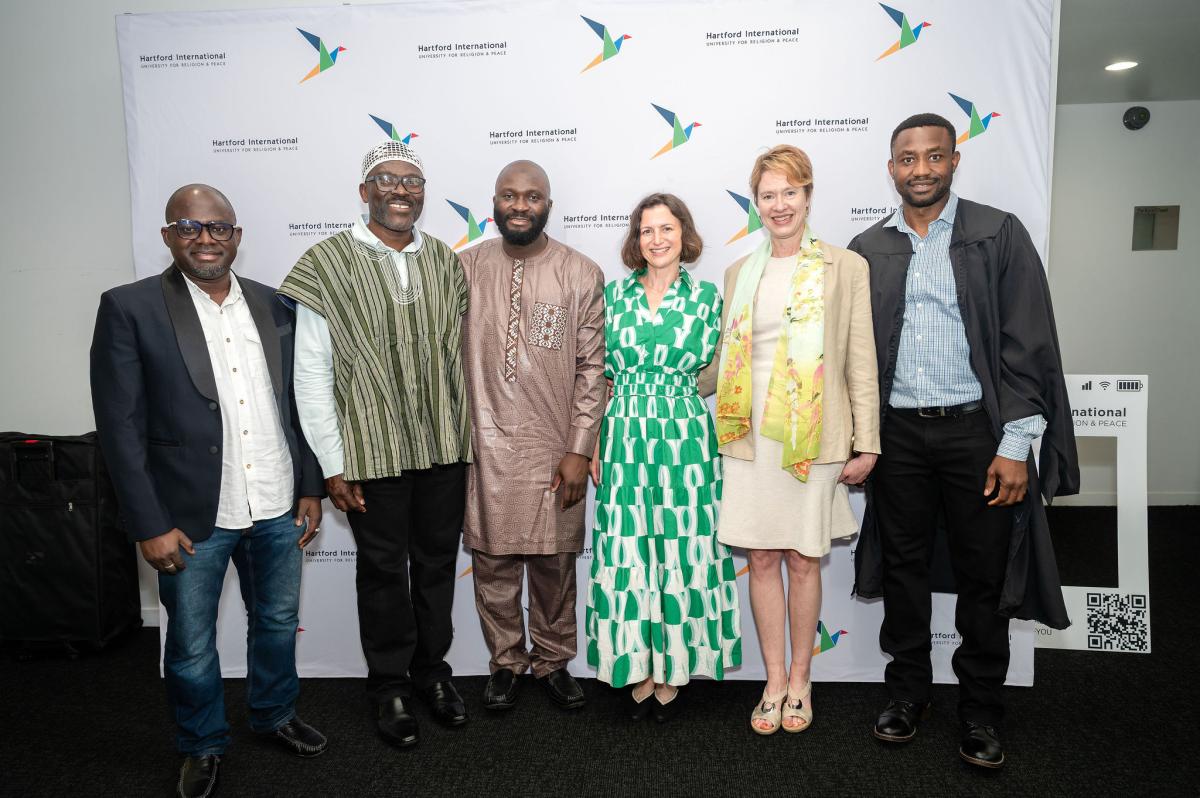
Our MA in Chaplaincy Program is a professional degree where education is structured around the integration of theory and practice. We train the next generation of religious leaders, who view chaplaincy as the professional practice of spiritual care for all people.
You will develop the concrete skills and deep understanding necessary for working in a multifaith environment, as outlined in “Common Qualifications and Competencies for Professional Chaplains” and the “Standards of Practice for Professional Chaplains” of the Association of Professional Chaplains. Our graduates are confident in their ability to care for and empathize with people of all backgrounds in many settings – from hospitals and prisons to universities, the military, and in various religious communities.
Chaplaincy Program Structure
The MA in Chaplaincy is a 36-credit professional degree program. It can be completed online in two years by a full-time student, apart from the Field Education and Clinical Pastoral Education requirements (which may be completed at students' local sites), and a required 3-day on-campus retreat. Check our Academic Calendar for the upcoming summer session to see retreat dates. Students may choose to complete the general chaplaincy program or specialize in Islamic Chaplaincy or Eco-Chaplaincy.
Should I consider the Dual Pathway for Chaplaincy?
HIU’s dual degree program in Interreligious Studies and Chaplaincy is designed for students planning on a chaplaincy career for which a unified 72-credit program is a necessity. Examples include the federal prison system, Veteran’s Administration hospitals, and the U.S. military.
-
Required Core
- Chaplaincy Models and Methods
- Theology and Scriptures in Spiritual Care Practice
- Psychology and Sociology for Chaplaincy
- Religious and Cultural Ethics for Chaplaincy
Students will choose one of the following tracks:
General Chaplaincy
- 8 electives
Islamic Chaplaincy
- Muslim Pastoral Theology
- Four electives in consultation with the Program Director
Eco-Chaplaincy
- Eco-Care: Chaplaincy in a More-than-Human World
- Environmental Ethics: Leadership and Justice for Life on Earth
- Eco-Spirituality or another spirituality course (Contemplative Prayer Practices or Rites of Passage)
- Two electives in consultation with the Program Director
Field Education
For two semesters, students complete six hours of service per week in a site, such as a homeless shelter, high school, house of worship, or other service organization and complete one two-hour class period each week. Students on the Eco-Chaplaincy track will complete an ecologically oriented Field Education experience.
Clinical Pastoral Education
Students must complete one full unit of ACPE-accredited Clinical Pastoral Education. Students accepted to the Chaplaincy program must arrange for their CPE in consultation with the program co-directors. Students can substitute one additional unit of CPE as an elective; the additional unit of CPE must be level II or higher.
- Chaplaincy Models and Methods
- Theology and Scriptures in Spiritual Care Practice
- Psychology and Sociology for Chaplaincy
- Religious and Cultural Ethics for Chaplaincy
Co-Curricular Experiential Learning for Chaplaincy Students
Whether enrolled in the Chaplaincy program alone or in the dual degree program (MAIRC), chaplaincy students will participate in an on-campus retreat (2–3 days) providing a venue for networking, cohort-building, and review of spiritual caregiving skills.
-
- As captured in the BCCI competencies, students will be able to use the intellectual, interpersonal, and professional skills needed to provide chaplaincy care in complex, pluralistic environments. These are described in the Sections I-IV of the Common Qualifications and Competencies for Professional Chaplains, set by the Board of Chaplaincy Certification Inc. These include:
Section I: Integration of Theory and Practice Competencies
Section II: Professional Identity and Conduct Competencies
Section III: Professional Practice Skills Competencies
Section IV: Organizational Leadership Competencies
2. Graduates will have demonstrated knowledge of the Association of Professional Chaplains’ fifteen “Standards of Practice for Professional Chaplains.”
3. Graduates will have command of the Association of Professional Chaplains Code of Ethics, the evidence for this being recorded on Hartford Seminary’s “Code of Ethics Worksheet.”
4. Graduates will have a working knowledge in scriptural languages, and/or ability to recite passages from scripture.
-
Application deadlines
- Rolling admissions (June 15 for international students) for the Fall Semester; to be considered for financial aid, separate Applications for Financial Assistance must be completed and submitted to the Financial Aid Office.
- Rolling admissions (November 1 for international students) for the Spring Semester.
Application Requirements
All completed applications are reviewed by the Admissions Committee.
- Prior Education: Complete official transcripts from all previous undergraduate and graduate institutions must be submitted to the Admission's Office. Applicants are required to present transcripts in English or accompanied by a certified English translation. A bachelor’s degree (or its educational equivalent) at a high level of achievement from an accredited institution is a prerequisite for admission. Admission is granted only on the basis of the terms stated in the Hartford International University Catalogue and in the admission letter.
NOTE: Admitted students with non-U.S. transcripts will be required to submit evaluated transcripts completed by a credential evaluation service. You do not need to have your transcript evaluated unless you have been admitted. Your admission will be provisional until an evaluated transcript is received and reviewed. We must receive your evaluated transcripts within three weeks of the date on your admission letter. We recommend The Evaluation Company (formerly SpanTran) as the most economical option for transcript evaluation. HIU will be notified directly when the transcript evaluations are completed.
- Statement of Purpose: Each Statement of Purpose is unique and is meant to be an expression of the individuals that write them. We want to know what is important to you, what has shaped you, and, ultimately, who you are. You have the opportunity to tell us about the aspects of your character and experience that help us understand why you are a good match with this program. We also want to know how you would both gain from and contribute to our unique environment. The Statement of Purpose should be four to five pages (typed, double-spaced) and should reflect on:
- your goals in seeking theological education and the experiences or values that have led you to do so;
- the reasons you have chosen Hartford International University, in particular;
- your educational/vocational goals;
- your perceived strengths and potential areas for development
- the life experiences that have most significantly shaped you in terms of your interest in chaplaincy
- References: Three letters of recommendation. We prefer that one be from a faculty member of an institution from which the applicant has earned a degree or another person who can speak to the applicant’s potential for graduate level study; one recommendation should be from an individual who can speak to the applicant’s potential for service as a chaplain. HIU recognizes that everyone has a different pathway to graduate work, so although we have listed preferences, we encourage applicants to submit letters from those who know them best and can offer helpful information to the application.
- English Language Proficiency: Students who are not native English speakers or who have not had English as a primary language of instruction in their academic studies, are required to submit scores of the Test of English as a Foreign Language (TOEFL), the International English Language Testing System (IELTS), or the Duolingo English Test (DET) examination and achieve a minimum score of 80 on the internet version of TOEFL or 550 on the paper based total; 6.5 on the IELTS; or 110 on the DET
- Interview: An interview with a Chaplaincy Program co-Director will be scheduled once the items listed above are submitted.
- Transfer Credit: Applicants who have previously taken graduate level courses in the areas of Arts of Ministry or Practical Theology from an accredited institution may be eligible for up to 9 credits of transfer credit. Requests concerning transfer credit should be made at the time of application. Prior courses approved for transfer credit will count toward the elective requirement of the MA in Chaplaincy.
-
Need-based financial aid:Domestic applicants may apply for university grants by completing the FAFSA (Free Application for Federal Student Aid) and the HIU Scholarship and Grant Supplemental Form. Based on demonstrated need, admitted students who are registered for 2 classes or more (6 credits or more) may receive up to 40% off tuition.
Merit Scholarships:
Domestic and international candidates may apply for the Dean's Scholarship, see our Types of Aid page for more details.International applicants, who are admitted, may apply for institutional aid (30% off tuition) by submitting the HIU Scholarship and Grant Supplemental Form. This International Student Scholarship is renewable annually, with the completion of the Supplemental form each academic year. Note that reporting external funding is a requirement of all students receiving aid at HIU.
Where Your Journey May Lead
MA in Chaplaincy Salary & Career Paths
(Industry Averages)
$74,247
Community Chaplaincy
$83,845
Hospital Chaplaincy
$82,961
Military Chaplaincy
$129,000
University Chaplaincy
$140,713
Prison Chaplaincy
Courses you may take
Here is a small sample of courses students in the chaplaincy program take. To view the entire course listing, use the link below.
-
As the gateway to the MAC curriculum, this course is a comprehensive, systematic introduction to professional chaplaincy /spiritual caregiving; orientation to (or, in the case of advanced students, opportunity for reflection on) the role of the chaplain and methods suitable to the contexts in which chaplains characteristically serve (including schools, colleges, universities, prisons, health care facilities, fire and police departments, seaports, airports, the military, and mass casualty situations); and facilitates attainment of the “Common Qualifications and Competencies” and the “Standards of Practice” advocated by the Association of Professional Chaplains.
-
This course aids in the chaplain’s role definition as a person representing religion and God on the edges of religious institutions.
-
This course is designed for people of all spiritual/religious backgrounds who are providing spiritual and emotional support to others, leading faith communities, serving as chaplains, working on justice issues, or seeking additional self-care practices.
-
We will hone perspectives and practices for leading adaptive change and for engaging in nonviolent processes for change in contemporary issues.
-
-
-
Death is a constant presence in human life. The chaplain’s role, whatever the context, will inevitably include care of the ill and the dying, their families, and those who are grieving loss.
The Value of Experience
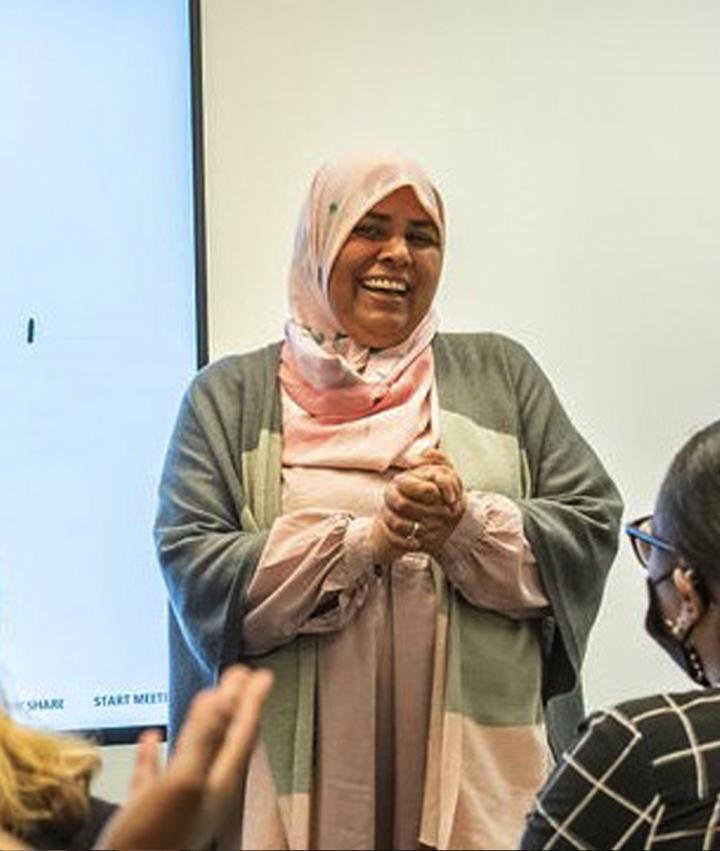
Faculty
Our faculty bring years of academic and practical experience teaching and serving communities of different faiths as practicing chaplains and religious leaders. They are award-winning authors, scholars of religion, and passionate leaders of faith, with teaching and research experience that makes them experts in their fields. They have spoken to their research on international stages, emphasizing sociological contexts, gender, and religion in the modern world.
Learn more »Alumni Network
With a foundation in interreligious education and professional spiritual care, our alumni are serving as chaplains across the globe – from top academic institutions to leading religious organizations. They hold religious leadership roles where they serve people in diverse communities and are focused on faith as a means to inclusivity and wellbeing while erasing religious dogmatism.
Learn more »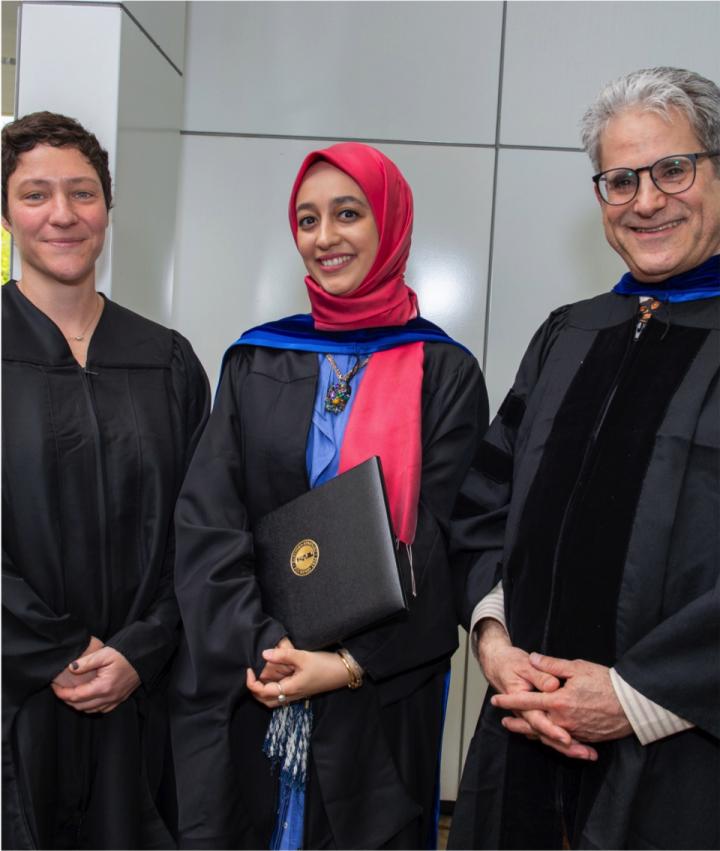
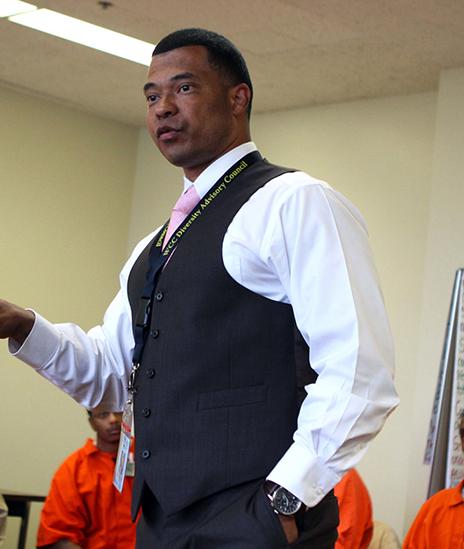
Employment Resources
Find employment opportunities and other resources at these links:
Program Faculty
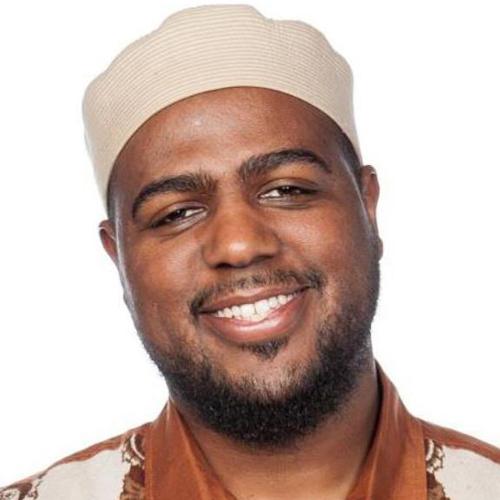
Bilal W. Ansari
Associate Professor of Practice, Co-Director of MA in Chaplaincy, Director of Islamic Chaplaincy program
Imam Dr. Bilal W. Ansari, a 2011 graduate of Hartford International University, is Co-Director of the MA in Chaplaincy program and Director of the Islamic Chaplaincy program, as well as Associate Professor of Practice.
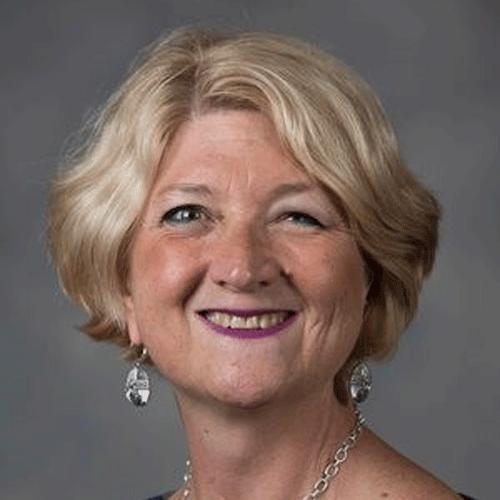
Janet E. Fuller
Co-Director of MA in Chaplaincy; Faculty Associate
Jan Fuller spent her early life in the Middle East, living through four wars before she was 23 and returned to the US. She considers Beirut Lebanon her home and is fluent in Arabic. At an early age she felt called to a ministry bringing heart and mind, scholarship and faith, together as part of a whole life and found that calling in University Chaplaincy.
Opportunities & Highlights
Featured Students & Alumni
Related Blog Posts

Chaplaincy
Chaplaincy vs. Counseling: Understanding the Difference — and Why It Matters
Chaplaincy and counseling both provide support and change lives. Learn more about the difference between the two, how they complement one another, and how HIU’s MA in Chaplaincy (MAC) program prepares chaplains to offer holistic care. The post Chaplaincy vs. Counseling: Understanding the Difference — and Why It Matters first appeared on Religion & Peace.
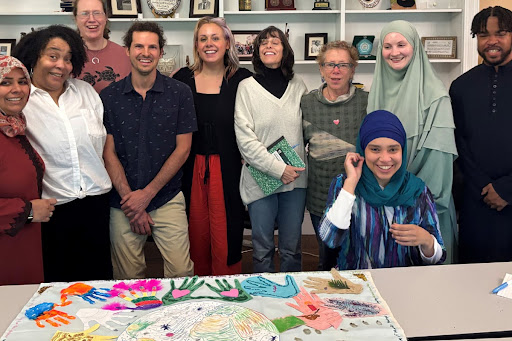
Chaplaincy
Retreat Brings Chaplains’ Hearts and Minds Together
In a three-day retreat, chaplaincy students at Hartford International explored questions of identity, divinity, and community leading to a powerful journey of transformation - providing a glimpse of the leaders they are becoming. The post Retreat Brings Chaplains’ Hearts and Minds Together first appeared on Religion & Peace.

Chaplaincy
The Need for Climate Conscious Chaplains
Read more about Lynn Trotta’s journey to discovering eco-chaplaincy and the work chaplains are doing in this field to provide comfort to careseekers and advocating for climate justice. The post The Need for Climate Conscious Chaplains first appeared on Religion & Peace.
Take the Next Step
Broaden your perspective. Deepen your ability to make a difference. Hartford International University programs prepare religious leaders and peacemakers who go beyond their own beliefs to embrace people of all faiths.
Recent News



Alumni News
Former Board Chair and Alum, Bill Farley '97, Publishes a Book of Spiritual InsightsJanuary 29, 2026
Join our mailing list
Keep up with all the latest happenings at Hartford International.


